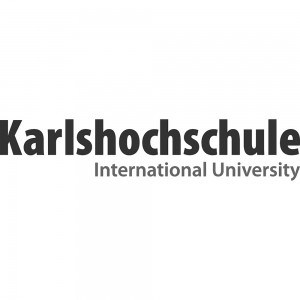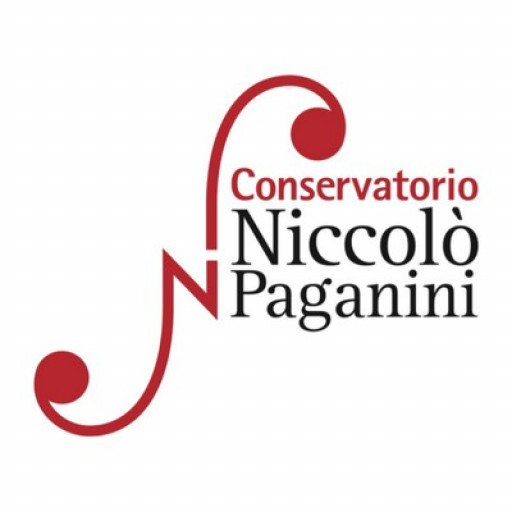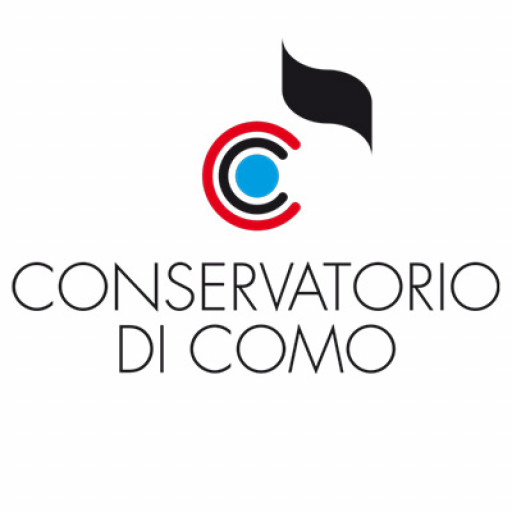Photos of university / #radboud_uni
Philosophy at Radboud University offers a comprehensive and engaging program designed to cultivative critical thinking, analytical skills, and a deep understanding of fundamental questions about existence, knowledge, ethics, and the nature of reality. The programme emphasizes both historical and contemporary philosophical debates, providing students with a broad perspective on philosophical thought from ancient times to modern-day issues. Students will explore diverse areas such as metaphysics, epistemology, ethics, political philosophy, philosophy of mind, and science, encouraging them to develop their own reasoned arguments and philosophical insights.
Throughout the programme, students are encouraged to adopt an interdisciplinary approach, connecting philosophical ideas with other fields such as psychology, neuroscience, political science, and the arts. This holistic perspective prepares graduates for various career paths, including academia, education, research, policy-making, and consultancy. The curriculum combines lectures, seminars, tutorials, and research projects, fostering an active learning environment where students are challenged to think critically, question assumptions, and articulate their ideas effectively.
Radboud University prides itself on its international environment, welcoming students from all over the world. The philosophy program emphasizes both theoretical understanding and practical application, with opportunities for internships, research collaborations, and participation in philosophical conferences and events. The faculty comprises experienced researchers and scholars who are dedicated to providing personalized mentorship and support to students, helping them to develop their academic and professional skills.
Graduates of the Philosophy program at Radboud University are well-equipped to analyze complex issues, engage in thoughtful discourse, and contribute meaningfully to societal debates on ethics, science, and human values. The flexible structure of the program allows students to tailor their studies according to their interests, making it suitable for those aiming to pursue postgraduate studies or enter professions requiring critical and reflective thinking. Overall, the programme aims to inspire students to become thoughtful, open-minded individuals with a lifelong passion for the pursuit of wisdom and understanding.
The Philosophy Bachelor's program at Radboud University offers students an in-depth exploration of fundamental questions about existence, knowledge, ethics, and society. The program is designed to develop critical thinking, analytical skills, and a reflective mindset, enabling students to approach complex issues from multiple perspectives. Throughout the three-year curriculum, students engage with core philosophical disciplines such as epistemology, metaphysics, ethics, history of philosophy, and logic, while also exploring contemporary issues like social justice, environmental ethics, and the impact of technology on human life. The program emphasizes active participation through discussions, debates, and writing assignments, fostering a vibrant academic community where diverse viewpoints are valued.
In the first year, students build a strong foundation in philosophical methods and introduce themselves to key philosophical questions and figures. They learn to analyze texts critically and to articulate their own ideas effectively. The second year provides more specialized courses, allowing students to deepen their understanding of specific areas such as moral philosophy, political philosophy, and the history of philosophical thought. Throughout this phase, students also develop research skills and gain experience in academic writing. In the final year, students undertake a substantial research project or thesis, applying their accumulated knowledge to a topic of their choice under supervision. They are encouraged to link philosophical inquiry with contemporary societal issues, preparing them for careers in academia, education, policy-making, or other fields requiring critical reasoning.
The program benefits from Radboud University’s interdisciplinary approach and strong emphasis on societal relevance. Students are encouraged to question assumptions, challenge existing paradigms, and develop their own philosophical viewpoints. Moreover, they have opportunities to participate in international exchanges, internships, and seminars with renowned philosophers and scholars. The curriculum is designed not only to provide a thorough understanding of philosophical traditions but also to foster skills that are valuable in a wide range of professional contexts. Graduates of this program are equipped with the intellectual tools to analyze complex problems, communicate effectively, and think ethically and critically about the world around them.
A completed Bachelor's degree in Philosophy or have another Bachelor's diploma with a philosophical component of at least 60 EC.
A proficiency in English.
In order to take part in this programme, you need to have fluency in both written and spoken English. Non-native speakers of English* without a Dutch Bachelor's degree or VWO diploma need one of the following:
A TOEFL score of ≥577 (paper based) or ≥90 (internet based)
An IELTS score of ≥6.5
Cambridge Certificate of Advanced English (CAE) or Certificate of Proficiency in English (CPE) with a mark of C or higher
* Applicants are considered to be a native speaker of English if they are from Australia, Canada (with exception of Quebec), Ireland, New Zealand, Singapore, UK, USA or South Africa.
There are various scholarships available for studying at Radboud University. Some of the opportunities are described below. A full list, including detailed information, can be found on our scholarships and grants page at our website.
Radboud Scholarship Programme
Open to a select number of excellent international students. Instead of the institutional tuition fees, non-EEA students pay the legal tuition fees (€2,083 in 2019/2020). Visa and residence permit costs, liability insurance and health insurance are also covered.
Orange Tulip Scholarship
Open to students from Brazil, Mexico, Russia, Indonesia, South-Korea, Vietnam, Thailand, and China. Instead of the institutional tuition fees, non-EEA students pay the legal tuition fees (€2,083 in 2019/2020). Visa and residence permit costs, liability insurance and health insurance are also covered.
Fulbright-Radboud Scholarships
Open to excellent American students. The grant will be paid in 12 monthly instalments of 1,050 euros. International travel and the cost of the residence permit will be covered, and an extra allowance of €1150 will be paid on arrival.
Sino-Dutch Bilateral Exchange Scholarship
Open to excellent students from China. Consists of a contribution of € 16,113 towards the total costs of one year of study or research in the Netherlands.
DIKTI-Neso Scholarships
Aimed at lecturers at higher education institutions in Indonesia who wish to pursue a PhD or Master's at a university in the Netherlands. A DIKTI scholarship includes allowances for living expenses, insurance, travel costs, tuition fees and more.
Indonesian Education Scholarship (LPDP)
Open to excellent Indonesian students under the age of 35. Involves a full scholarship.
Holland Scholarship Programme
Open to excellent students from Canada, America, India and Turkey. Scholarship consists of 5,000 euros payed at the start of study.
Dutch Student Finance
EU/EEA students and Swiss students under 30 years of age are eligible if they are working at least 56 hours per month in the Netherlands, or have been living in the Netherlands for five years or more. Dutch student finance consists of four components: a basic grant, a supplementary grant (depending on the parental income), a student travel product, and a loan.
The Philosophy Bachelor's degree program at Radboud University offers students a comprehensive introduction to philosophical thought, history, and methods. Over the course of the program, students explore fundamental questions about existence, knowledge, ethics, and the nature of reality, engaging with both classical and contemporary philosophical issues. The curriculum covers a broad range of philosophical disciplines, including metaphysics, epistemology, ethics, political philosophy, philosophy of mind, and philosophy of science.
Students have the opportunity to study the development of philosophical ideas from Ancient Greece through to modern and contemporary thought. The program emphasizes critical thinking, analytical skills, and reflective reasoning, preparing graduates for a variety of careers that require complex problem-solving and analytical capabilities. Teaching methods include lectures, seminars, and research projects, encouraging active participation and discussion to deepen understanding.
Radboud University’s Philosophy program also emphasizes the importance of intercultural and interdisciplinary perspectives. Students are encouraged to examine philosophical traditions from around the world and to consider their relevance to contemporary social and global issues. The program fosters an environment of academic inquiry and intellectual curiosity, supported by a faculty of experienced scholars dedicated to guiding students through their academic journey.
Particular attention is given to the development of skills such as academic writing, critical analysis, and argumentation. The program aims to equip graduates with the ability to read complex texts carefully, construct coherent arguments, and communicate philosophical ideas clearly. Throughout the courses, students engage with primary philosophical texts, contemporary debates, and practical applications of philosophical reasoning.
The Bachelor's program can be completed in three years, culminating in a Bachelor's degree (BA). It provides a solid foundation for pursuing further studies at the master's level, including specialized tracks within philosophy or related disciplines such as theology, law, or social sciences. Graduates of Radboud’s philosophy program often find employment in areas such as education, research, policy development, journalism, and cultural organizations.
The university’s campus is situated in Nijmegen, offering a stimulating academic environment combined with a lively student community. The program is designed to not only develop philosophical expertise but also to foster personal growth, ethical awareness, and an appreciation for cultural diversity. Radboud University maintains a strong reputation for its research and teaching in the humanities, making it an excellent choice for students passionate about philosophy and critical inquiry.










